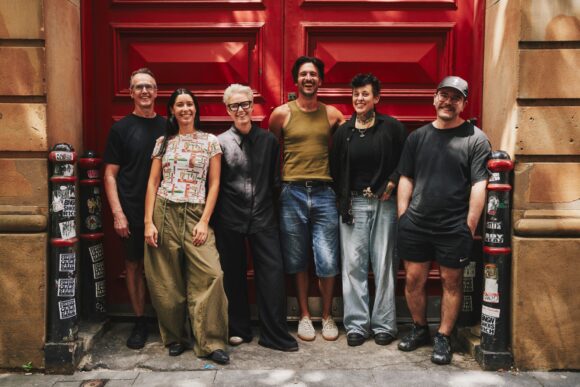Australia’s hospitality sector has always operated on tight margins. From local cafes and bustling pubs to the network of suppliers, caterers and service providers that support them, success depends on fast, reliable cash flow. But in recent years, rising costs, unpredictable revenue, and increasing payment delays have disrupted that balance.
More than $115 billion is currently owed to Australian small businesses in unpaid invoices. While restaurateurs rarely issue invoices outside of event bookings and catering orders, the businesses that power them – from produce or beverage suppliers to linen services – rely on the dependability of prompt payments to survive. Most invoices are now paid 27 days late on average. And the longer a payment is outstanding, the more likely it is to be pushed further out, or require negotiation of payment terms that can distort cash flow forecasting.
Recent ASIC figures paint a worrying picture. In FY25, 2,352 accommodation and food services businesses entered insolvency, a 41% increase on the prior year. When hospitality venues are under pressure, they delay or default on payments, creating a domino effect throughout the supply chain. The financial strain doesn’t stop at the front of house, it reverberates through small operators that rely on consistent cash flow to pay staff, purchase inventory, and plan for growth.
Why restaurant suppliers face unique challenges
Unlike other sectors, hospitality suppliers often work to tight weekly or even daily cycles. Orders are fulfilled fast, labour is scheduled in advance, and payments are expected promptly. But in many cases, invoices for catering jobs, corporate events, functions, or regular deliveries are paid well after the goods or services have been provided. When that lag stretches to 30, 60, or even 90 days, it throws business planning into chaos.
Our team at Zeller supports over 85,000 Australian small businesses with a range of in-person payment and online invoicing solutions, including a large number of hospitality-adjacent operators, such as food and beverage wholesalers, linen and laundry services, event caterers, equipment rental providers, florists, entertainers, and cleaning contractors. Many tell us that late payments are not just a nuisance – they’re threatening their ability to meet payroll, secure inventory, and stay on top of fixed costs like rent and insurance. In tough trading conditions, maintaining liquidity becomes a matter of survival.
Financial technology solutions that actually work
Technology cannot fix late payment culture on its own, but it can provide operators with affordable, practical, easy-to-implement solutions to reduce admin time, issue invoices faster, and give clients a more frictionless way to make payment. These tools are no longer enterprise-only; they are widely available, and increasingly embedded directly within the wider financial stack which businesses use to manage their day-to-day cash flows.
1. Send invoices immediately after delivery
It sounds simple, but one of the most powerful ways to improve cash flow is to send invoices as soon as a job is done. So whether you’re delivering fresh produce, or wrapping up entertainment after a function, delays in sending the invoice often mean delays in getting paid. Keep the payment terms tight. According to Zeller’s invoicing data, invoices sent as soon as the job is complete with immediate (same day) payment terms are paid fastest; on average, within 3.73 days. Too often, business owners treat invoicing as a task for later in the month or after-hours, unintentionally delaying their own income.
Using mobile invoicing apps, like Zeller App, reduces this lag. For example, finalising and issuing the invoice as the clean-down begins ensures it’s front of mind for the customer when they’re most engaged, and before internal approvals or distractions set in.
2. Make payment frictionless
Whether you’re invoicing a corporate client after you’ve hosted a long lunch, or a local council for community catering, making it easy for business clients to pay is critical. The fewer steps required, the more likely the invoice will be settled quickly.
Zeller’s invoicing platform data shows that 70% of invoices offering an instant online credit card payment checkout are paid on the same day they’re issued. When bank transfer is the only method, that figure drops to 28%. Streamlined, mobile-friendly payment experiences reduce friction, improve cash flow, and free up time spent chasing overdue invoices.
3. Automate the follow up processes
In hospitality, time is scarce, and chasing overdue invoices often drops to the bottom of the to-do list. But consistency is critical. Businesses that treat payment follow-up as a structured, professional process (not a personal confrontation) get paid faster and more reliably.
Automating reminders through invoicing systems or apps takes the burden off venue managers and ensures follow-up happens on time. When it’s built into your system, not reliant on memory or manual tracking, it reduces stress, protects relationships, and improves cash flow predictability. For hospitality operators, that means better planning, fewer surprises, and more confidence in covering payroll, rent, and supplier costs.
The broader economic dividend
Hospitality employs almost one in 12 working Australians and underpins tourism, city vibrancy and community cohesion. When venues close, the impact ripples through regional growers, cleaning contractors, craft brewers and local musicians. Ensuring operators are paid on time, and equipping them with tools to make that happen, protects far more than individual balance sheets; it safeguards jobs, suppliers and the cultural fabric of our cities.
Late payments aren’t new but in the current climate, they’re hitting harder and sinking businesses faster. If the hospitality industry is to remain resilient, every link in the chain must have the tools and processes to support healthy cash flow. That means fewer delays, fewer manual processes, and a shared understanding that getting paid on time shouldn’t be the hardest part of doing business.







